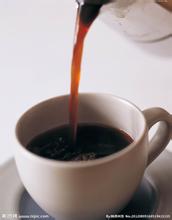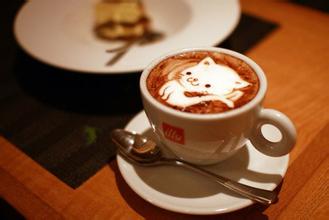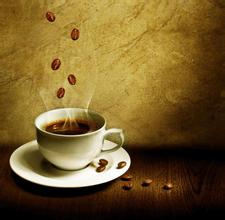An introduction to the characteristics of the manor producing area of Indonesian civet coffee with unique flavor and taste of Kopi Luwak
The Republic of Indonesia is divided into the Greater Jakarta Capital Zone, the Yogyakarta Special Zone, the Aceh Special Zone, and 30 provinces, with a total of 33 first-level districts. The second-level administrative region has 396 counties and 93 cities (2014 statistics). Other major economic cities include Surabaya, Bandung, Medan, Sanbaolong and Jugang.
Jakarta
The capital Jakarta, located on the northwest coast of Java, covers an area of 740.28km ²and has a population of 10.187 million. It is the political, economic and cultural center of the country and the hub of land, sea and air transportation, as well as the shipping center between southern Asia and Oceania. Jakarta became a famous seaport for exporting pepper and spices more than 500 years ago, when it was called "Sunda Graba", meaning "coconut". It was renamed Chajakarta in 1527, implying victory and glory. In 1618, the Dutch colonial army occupied it and changed its name to "Batavia". During World War II, Japanese invaders occupied Indonesia until Indonesia became independent in 1945 and was renamed Jakarta and designated as the capital of the Republic.
Surabaya
Surabaya is the capital of East Java Province, with a city area of 326km ²and a population of 3.6 million. It is the second largest city in the country after Jakarta, the main naval base, one of Indonesia's important manufacturing, agricultural products processing, trade centers and the sea and air transportation hub of Java. It is known as the "Hero City" because of its heroic resistance to Britain during the struggle for independence.
Medan
Medan is the capital of North Sumatra province, with an urban area of 342 square meters and a population of about 1.8 million, making it the third largest city in Indonesia. Bordering the Strait of Malacca, it is the west gate of Indonesia's foreign trade and one of the main entry and exit ports for domestic and foreign tourists. The establishment of the economic growth triangle in Indonesia, Malaysia and Thailand has strengthened its position as the development center of Jiangsu Province and northern Indonesia. it has promoted the rapid development of the city's small industries such as food processing, textile industry, leather goods, chemical industry, building materials, metals and means of transportation. The city has a clean appearance, shady trees and a pleasant climate. The Sultan Palace in the city was built in 1888. In the coffee industry, Kopi Luwak is widely regarded as a product with novelty as the selling point. "the consensus in the industry is that it tastes bad," said the American Special Coffee Association (Specialty Coffee Association of America,SCAA). SCAA quoted a coffee expert as saying: "obviously, the selling point of Kopi Luwak is its story, not its quality." Using the SCAA standard, Kopi Luwak scored two points lower than the lowest score for the other three types of coffee. It can be speculated that the processing of Kopi Luwak diluted the high-quality acidity and taste and made the taste more insipid. Of course, many people also seem to regard this insipid taste as the advantage of this coffee Kopi Luwak, which is produced by the droppings of Indonesian coconut cats (a kind of civets) as raw materials, so it is called "Kopi Luwak". This kind of animal mainly feeds on coffee beans. After completing fermentation in the coconut cat's stomach, it destroys protein, produces short peptides and more free amino acids, reduces the bitterness of coffee, and then excretes feces as the main raw material. Because coffee beans cannot be digested, they are excreted and Kopi Luwak is made after washing and baking. Coffee critic Chris Rubin said, "the aroma of the wine is so rich and strong, and the coffee is incredibly rich, almost like syrup." Its thickness and chocolate taste, and lingering on the tongue for a long time, pure aftertaste the Washington Post's food columnist Tim Carman once commented on Kopi Luwak sold in the United States and concluded that "it tastes like Folger coffee." It's like rotten, lifeless taste. It's like petrified dinosaur shit in bath water. I can't finish it. "
The civet likes to choose the most ripe, sweet, juicy coffee fruit in the coffee tree as food. As the coffee fruit passes through its digestive system, only the outer pulp of the fruit is digested, and the hard raw beans are then excreted out of the body Kopi Luwak intact by the civet's digestive system, produced in Indonesia, one of the most expensive coffee in the world. Indonesia grows a lot of coffee crops, including wild animals called civets, omnivores, pointed mouths and dark gray fur. The favorite food is fresh coffee beans, which are fermented and digested in the body and eventually excreted by cats. Feces are grains of coffee beans and become the most expensive feces in the world. Because the quantity is very rare, so the price is very expensive. Civets are distributed in Indo-China, India (northeast), Bangladesh, Bhutan, Sikkim, Nepal and Kashmir, but only Sumatran civets, or Indonesian civets, can produce Kopi Luwak.

Important Notice :
前街咖啡 FrontStreet Coffee has moved to new addredd:
FrontStreet Coffee Address: 315,Donghua East Road,GuangZhou
Tel:020 38364473
- Prev

Flavor and taste characteristics of Tanzanian coffee with pure flavor introduction of fine coffee in manor producing area
Pyrethrum: mainly planted by small farmers, the planting area is distributed in the southern highlands of Mbeya District and Iringa District. The annual output is estimated at 2500 tons. The centralized management department of the industry is the Tanganyika Bureau of exterminating Chrysanthemum. Oil crops: non-traditional crops, including industrial and oil crops, such as castor, sunflower, peanut, sesame, coconut, cottonseed and soybean. Many provinces are suitable.
- Next

Taste characteristics of Peruvian coffee with smooth taste introduction of fine coffee beans and organic coffee
In 1542, the Spanish royal family set up the Government House in Lima and established the Governor's District of Peru, which became the center of Spanish colonial rule in South America. At that time, Peruvian commerce was prosperous, merchants controlled most of South America's import and export trade, and the precious metals and other goods looted by the Spaniards from South America were shipped out of Peru. The colonists encroached on land in Peru, forced the Mita system, and forced the Indians to
Related
- Detailed explanation of Jadeite planting Land in Panamanian Jadeite Manor introduction to the grading system of Jadeite competitive bidding, Red bid, Green bid and Rose Summer
- Story of Coffee planting in Brenka region of Costa Rica Stonehenge Manor anaerobic heavy honey treatment of flavor mouth
- What's on the barrel of Blue Mountain Coffee beans?
- Can American coffee also pull flowers? How to use hot American style to pull out a good-looking pattern?
- Can you make a cold extract with coffee beans? What is the right proportion for cold-extracted coffee formula?
- Indonesian PWN Gold Mandrine Coffee Origin Features Flavor How to Chong? Mandolin coffee is American.
- A brief introduction to the flavor characteristics of Brazilian yellow bourbon coffee beans
- What is the effect of different water quality on the flavor of cold-extracted coffee? What kind of water is best for brewing coffee?
- Why do you think of Rose Summer whenever you mention Panamanian coffee?
- Introduction to the characteristics of authentic blue mountain coffee bean producing areas? What is the CIB Coffee Authority in Jamaica?

